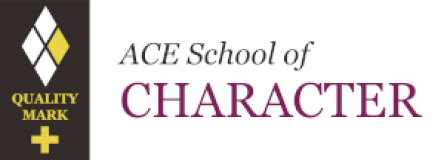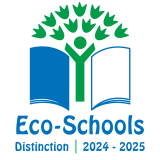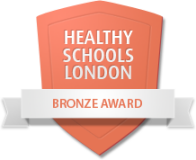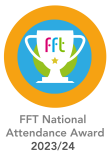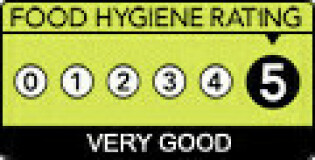School Context
Barking Abbey is a heavily over-subscribed twelve Form entry, 11-18 mixed Comprehensive school with approximately 2350 students on roll. Baseline entry attainment levels for students who are accepted into our Sixth Form are significantly below the national level overall.
Two thirds of our sixth form live in Barking and Dagenham, which is the 20th poorest council in the UK, with a high proportion of overcrowded households. Child poverty is also one of the highest in the UK with almost 50% of children been brought up in poverty. The borough has a much smaller percentage of adults with a higher education background than the national average. One-third of the intake comes from the area immediately around the school such as Newham and Tower Hamlets which have also very high levels of social deprivation . The school has a significantly higher Deprivation indicator compared to a national average. The index of multiple deprivation (IMD) puts our principal catchment area as the twentieth highest IMD score in England (based on 317 local authority districts, where 1 is the most deprived and 317 is the least deprived). According to IADC data from 2021, our students come from a local authority with the highest IMD score in London.Many of the council wards which our students live in all have neighbourhoods amongst the 10% most deprived in the country.
Local families have been hit very hard by the recent Cost of Living Crisis with the school needing to set up its own foodbank since early 2021. 179 families avail of weekly boxes with 80% of these having children in our Sixth Form. Due to heightened financial difficulties 41% of our students in Years 12-13 avail of our 16-19 bursary.
The school's sixth form population is diverse; 83.7% of students are from Minority Ethnic Groups. The proportion of minority ethnic communities has risen rapidly in the past decade.
Barking Abbey offers a range of A Level and BTEC vocational award programme at Key Stage 5, offering Subsidiary, Diploma and Extended Diploma qualifications in Business, , Sport Science, Applied Science, IT and Performing Arts.
Our NEET figure is 1% vs 2% nationally using DFE ‘experimental data’.
Our pastoral care and support has been graded as ‘outstanding’ by OFSTED due to the robust practice put in place to address the diverse needs and issues that students present with on entry to the sixth form.
COVID IMPACT STATEMENT (2020-2022)
COVID STATEMENT – APPLICANTS 2023 INFORMATION FOR UNIVERSITY AND COLLEGE ADMISSIONS TEAMS
GCSE, A Level and BTEC students at Barking Abbey Sixth Form have lost a significant amount of teaching time due to Covid-19. The school closed to these students whilst preparing for their GCSES on Monday 23rd March 2020, 14 teaching weeks prior to the end of their Year 10 studies in that academic year. Our students had no live lessons at all during this period of time to consolidate their Key Stage 4 curriculum having to work entirely independently on work set via Show My Homework.
Since re-opening to students commencing their Year 11 studies from the week commencing 7th September 2020, Barking Abbey has been hit particularly hard by the Covid-19 epidemic with students and staff being sent home to isolate with suspected symptoms on an almost daily basis. Over the period September 2020 to December 2020 65 (then year 11’s) tested positive for Covid. As a result, 187 close contacts were sent home with a total of 252 students impacted. With 280 students in Year 11 at the time this meant as 70% of students being impacted as a close contact and 90% of students overall including those that tested positive.
Staff and student absence reached a critical level after two months to the point that the whole school closed for 3 days to Year 11 students for a deep clean and only re-opened on a rota basis to the majority of students for the 2 weeks leading up until the Christmas holiday period in 2020. This incurred an increased level of stress and anxiety for our students and staff.
Due to the lockdown period between 4th January - 3th March 2021 there has been very limited opportunity for moderation of assessment data in the lead up to this cohort’s GCSEs. Whilst online lessons were conducted by staff via Teams over the 10 week period, connectivity issues with poor wi-fi and broadband access coupled with 150 students needing a laptop loan made accessing these sessions very challenging particularly due to laptop loan issuing delays in the first half term of the Spring period. Students whose connectivity and laptop access enabled them to have online lessons were restricted to 3 rather than the current 6 hours of weekly lessons allocation per subject.
Whilst every attempt was made to provide accurate GCSE Teacher Assessment grades for their GCSEs in Summer 2021, tight control and rigour in our moderation systems made it difficult for staff in their awarding of these qualification grades to assess fully how much lockdown and the pandemic had impacted their educational progression.
At the start of their Year 12 Sixth Form studies, the arrival of the Omnicron variant in the Autumn Term of 2021 led to further absences with 132 students on one or more occasions requiring a period of isolation from October- December. There were only limited opportunities to extend the students’ knowledge and understanding beyond the curriculum and all super-curricular activities were cancelled. We made available to the students any on-line opportunities that became available over this period, such as Oak Academy, Seneca resources alongside a range of virtual work experience and taster lectures to prepare them for their Post 18 career planning. However, all provision was dependent upon the students having access to IT facilities and a quiet space to study in the family home which did not apply to all of our students. There was no access to practical work during this time. On their return to school in early 2022, assessment results demonstrated that many had struggled to cope with the effects of the isolations, teacher absences, lockdown and the expectations placed upon them to study in an unsupervised capacity
It is clear that between Spring 2020 and January 2022, Covid-19 continued to have a significant impact on our present A Level and BTEC students in spite of our best efforts to provide them with a consistent education.



